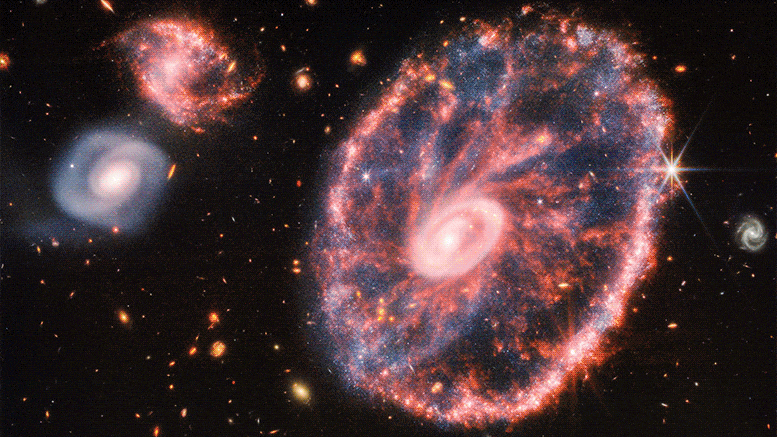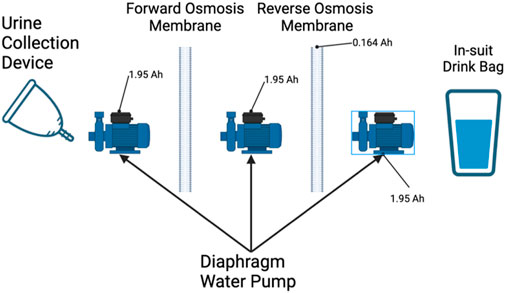Zapowiedź misji Artemis I na Księżyc…
a Nowy wygląd od nas[{” attribute=””>James Webb Space Telescope …
And an anniversary for one of our explorers on Mars … a few of the stories to tell you about – This Week at NASA!
NASA prezentuje misję Artemis I Moon
Podczas dwóch odpraw obejrzeliśmy bezzałogową misję Artemis I na Księżyc. 3 sierpnia urzędnicy agencji w Centrali NASA oraz w innych ośrodkach NASA zaprezentowali się „Przegląd dużego obrazu” zadania.
„Artemis I pokazuje, że możemy robić wielkie rzeczy. Rzeczy, które jednoczą ludzi, rzeczy, które przynoszą korzyści ludzkości. Rzeczy takie jak Apollo inspirują świat. ” – Bill Nelson, administrator NASA
Śledził to dwa dni później z aktem Zanurz się głębiej w harmonogram i operacje misji Z Centrum Kosmicznego Johnsona. Agencja obecnie celuje, nie później niż w poniedziałek, 29 sierpnia, w wystrzelenie rakiety Space Launch System, aby wysłać statek kosmiczny Orion wokół Księżyca iz powrotem na Ziemię. Artemis I odbędzie się w ciągu około sześciu tygodni, aby sprawdzić systemy, zanim astronauci polecą statkiem kosmicznym na Artemis II.

To zdjęcie Wagon Wheel i towarzyszących mu galaktyk jest wykonane z kamery internetowej bliskiej podczerwieni (NIRCam) i średniej podczerwieni (MIRI), która ujawnia szczegóły trudne do zauważenia na samych pojedynczych zdjęciach.
Ta galaktyka powstała w wyniku zderzenia z dużą prędkością, które miało miejsce około 400 milionów lat temu. Koło składa się z dwóch pierścieni, błyszczącego pierścienia wewnętrznego i kolorowego pierścienia zewnętrznego. Oba pierścienie rozciągają się na zewnątrz od środka zderzenia jak fale uderzeniowe. Źródło: NASA, ESA, CSA, STScI, zespół produkcyjny Webb ERO
Webb robi nowe zdjęcie Galaktyki Koło Wozu
Kosmiczny Teleskop Jamesa Webba NASA Stwórz ten nowy szczegółowy obraz Galaktyki Koło Wozu i dwóch mniejszych galaktyk. Galaktyka Koło Wozu, położona około 500 milionów lat świetlnych od nas, jest rzadkim typem galaktyki, którą astronomowie nazywają „galaktyką pierścieniową”. Uważa się, że galaktyka koła wozu była zwykłą galaktyką spiralną, taką jak nasza[{” attribute=””>Milky Way before a collision with another galaxy affected the Cartwheel Galaxy’s shape and structure.

Stay curious with NASA and celebrate the agency’s Curiosity Mars rover’s 10th anniversary on the Red Planet with a two-sided poster that lists some of the intrepid explorer’s inspiring accomplishments. Credit: NASA/JPL-Caltech
After 10 years on Mars, Curiosity Still Has Drive
NASA’s Curiosity rover is celebrating 10 years on Mars. The rover landed on the Red Planet at 10:32 p.m. PDT on August 5, 2012. Since then, it has driven about 18 miles and climbed more than 2,000 feet while exploring Gale Crater and the foothills of Mount Sharp. Most importantly, Curiosity determined that liquid water and the chemical building blocks needed for life were indeed present in this region of Mars for at least tens of millions of years. The Curiosity team now plans to have the rover spend the next few years exploring a new region, one thought to have formed as water was drying out, leaving behind salty minerals called sulfates.

A collage of NASA’s SpaceX Crew-5 from left to right, top to bottom: NASA astronauts Nicole Mann and Josh Cassada, JAXA (Japan Aerospace Exploration Agency) astronaut Koichi Wakata, and Roscosmos cosmonaut Anna Kikina. Credit: NASA
The Next Commercial Crew Launch to the Space Station
The launch of our SpaceX Crew-5 mission to the International Space Station is currently targeted for no earlier than September 29 from our Kennedy Space Center. NASA astronauts Nicole Mann and Josh Cassada, Japan Aerospace Exploration Agency astronaut Koichi Wakata, and Roscosmos cosmonaut Anna Kikina discussed their upcoming mission during an Aug. 4 briefing at our Johnson Space Center.
“We are coming together as a human race. And our mission onboard the International Space Station of developing this technology and research to benefit all of humankind is really what brings us together.” — Nicole Mann, NASA Astronaut
This is NASA’s fifth crew rotation flight to the space station with a U.S. commercial spacecraft.

Actor Nichelle Nichols, who died July 30, 2022, didn’t just break new ground on “Star Trek” by playing one of the first leading recurring Black female characters on U.S. television. A decade after the show ended, she did the same for NASA, appearing in a promotional film aimed at recruiting women and people of color to apply to be astronauts, as she recounted in a 2012 visit to NASA’s Goddard Space Flight Center. The next astronaut class, appointed in 1978, included Guy Bluford, the first Black American in space, and Sally Ride, the first American woman in space. Credit: NASA
NASA Pays Tribute to Nichelle Nichols
NASA is remembering actor Nichelle Nichols, who passed away on July 30. She broke new ground on “Star Trek” in her role as Lieutenant Uhura, one of the first leading recurring Black female characters on U.S. television. Years later, NASA officials enlisted her help to recruit the first women and minority astronauts for the Space Shuttle Program. In a statement, NASA Administrator Bill Nelson noted that as we prepare to send the first woman and first person of color to the Moon under Artemis, NASA is guided by the legacy of Nichelle Nichols.
That’s what’s up this week @NASA

„Odkrywca. Nieprzepraszający przedsiębiorca. Fanatyk alkoholu. Certyfikowany pisarz. Wannabe tv ewangelista. Fanatyk Twittera. Student. Badacz sieci. Miłośnik podróży.”



